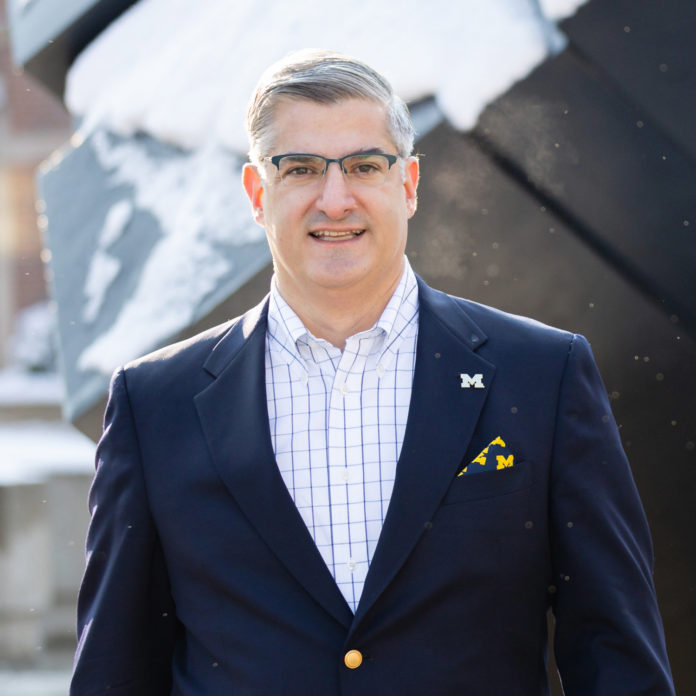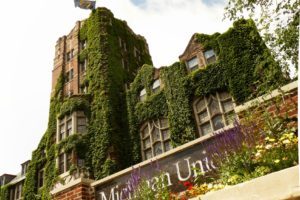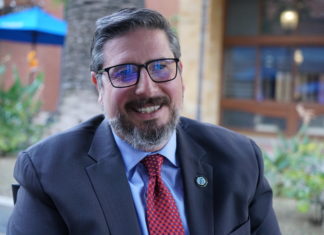ANN ARBOR, Mich. — On Election Day, November 8, among the many nationwide and local elections, is a race for the University of Michigan Board of Regents. Sevag Vartanian is running as a Republican on a platform of fiscal responsibility. In a recent interview he said his goal is to bring responsible leadership back to the institution, which has recently been plagued with scandals and, according to Vartanian, financial irresponsibility.
U-M’s Importance to the Armenian Community
While accurate statistics are difficult to come by, according to recent US Census data, Michigan comes in fifth among US states for the size of its Armenian community, after California, Massachusetts, New York and New Jersey. The community is centered in the Metro Detroit area which is widely considered the 4th or 5th largest Armenian community in the US, regionally speaking (after the greater Los Angeles, Boston, and New York / New Jersey areas, and comparable to Fresno, CA).
At the same time, U-M is a world-class institution ranked 25th among American universities by the US News and World Report. Among public universities, it is ranked third, according to the same outlet, behind the University of California, Berkeley and the University of California, Los Angeles . Michigan’s Law School is ranked 10th while its medical school is ranked 17th.
A combination of a large Armenian community in the area, big number of university students of Armenian descent, and the relative affluence of the local Armenian community, has made U-M a major center of Armenian Studies. The school has two endowed chairs in Armenian studies: the Alex Manoogian Chair in Modern Armenian History, currently held by Professor Hakem Al-Rustom, and the Marie Manoogian Chair in Armenian Language and Literature, currently held by Prof. Michael Pifer, himself a graduate of U-M who studied under his predecessor, Dr. Kevork Bardakjian. Other major figures in Armenian studies such as Dr. Jirair Libaridian and Dr. Ron Suny have been a part of U-M’s Armenian programs throughout its history and currently. Regular classes are given in the Western Armenian language and on various aspects of Armenian history and culture, Classical and Eastern Armenian language is also offered as are frequent lectures and academic conferences. The school also boasts a very large and active Armenian Students’ Cultural Association.
The satellite campus, U-M Dearborn, attracts many local Armenian-American students as well; it is the home of the Armenian Research Center (ARC), whose current director is Prof. Ara Sanjian. The ARC, which was founded by Dr. Dennis Papazian and funded by the Knights of Vartan, is more closely connected to the local community as well as having a special focus on Armenian Genocide history; Armenian history and language classes are also given at Dearborn. The Dearborn campus, as well as the Flint campus, are administered by the same Board of Regents that run the main Ann Arbor campus.










